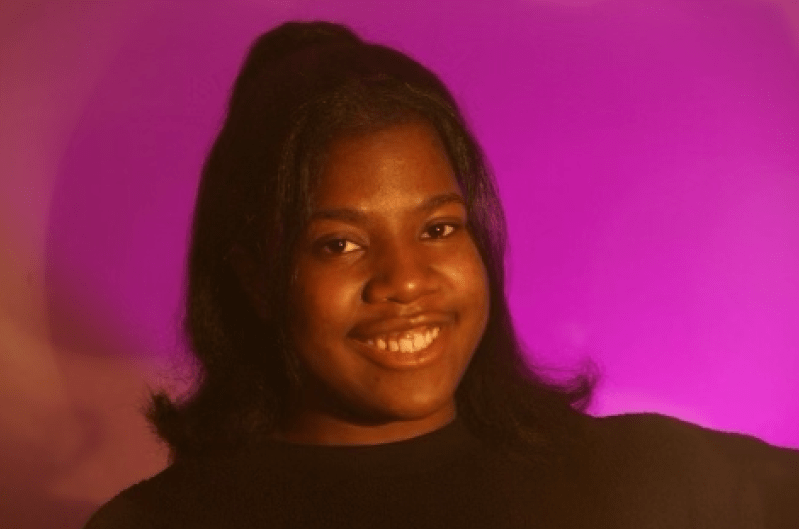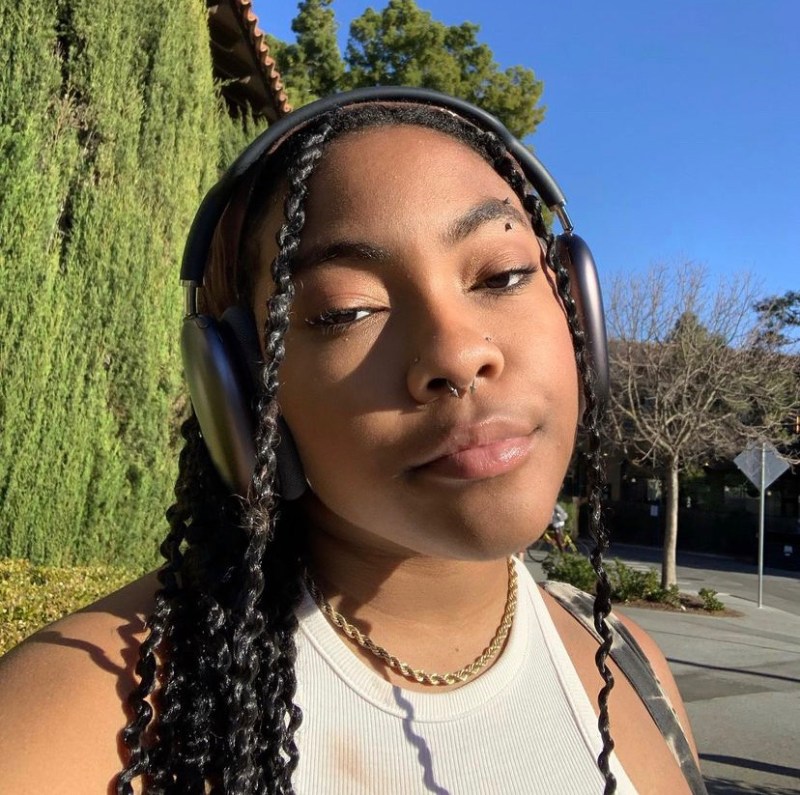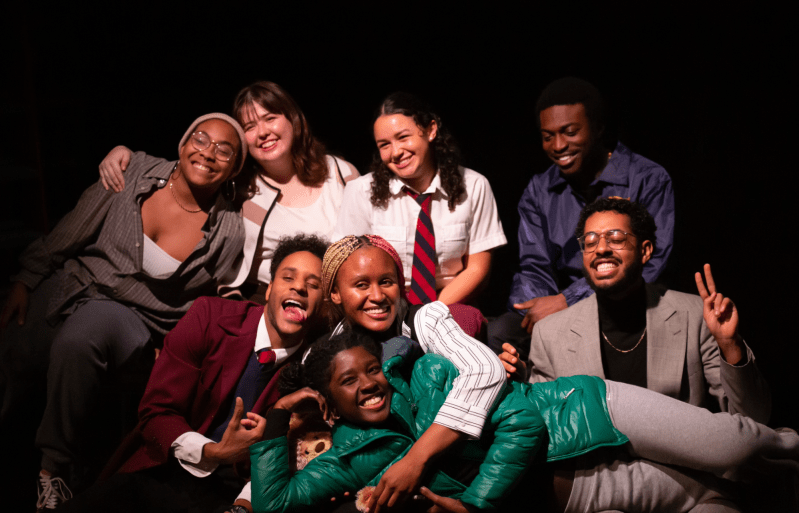BLACKstage, a group aiming to offer Black students a community to explore theater, was recently revived. The organization’s first production after the revival, “Pipeline,” explored the school-to-prison pipeline and the systemic racism Black students often experience.
The Stanford Daily sat down with Lee’Shae Lawson ’23, BLACKstage’s Education Chair, and Eryn Perkins ’25, the director of “Pipeline” and co-director of the upcoming production “Cinderella,” to talk about their experience in theater and BLACkstage’s spring musical.

The Stanford Daily [TSD]: What got you interested in BLACKstage?
Lee’Shae Lawson [LL]: I wanted to have a space that supported Black students and emphasized our voices and stories in the content of the show.
TSD: What is the importance of having a space that supports Black students in theater, and how access to this community has impacted you?
LL: “Pipeline” was really impactful to me. We put in a lot of work, but I was gratified once I saw the audience. The show really made the impact that I wanted to have: to help Black students have more exposure to theater. Pipeline also helped bridge the gap between faculty and students because we had many faculty members in the audience, including the Associate Program Director of African and African American Studies. Overall, having a Black-majority audience was really incredible and something I’d never seen before.
TSD: What’s one thing you’re looking forward to for the production of “Cinderella”?
LL: I love musicals. I’m really excited to get to dive into the music and the theatricality. Our intention with “Pipeline” was more serious and now we want to follow up with a lot of Black joy, a chance to just exhale, letting it be whimsical and magical. I’m really excited to bring that to campus, especially during spring where it’s a very magical time.
TSD: For Black students that haven’t been able to engage with theater, what kind of advice would you give them?
LL: I would say — especially with BLACKstage — you can absolutely just dive in. We have general meetings periodically throughout the quarter. You can meet people who are part of the organizations and ask about our experience. We have assistant roles open, and those are the best way to get your feet wet before you take on a bigger responsibility. You’ll be supported and there’s no experience necessary. So just dive in.

TSD: How did you get involved in BLACKstage?
Eryn Perkins [EP]: I was a freshman last year researching all the theater organizations that were on campus and I realized that BLACKstage used to exist but no longer existed and that made me really sad. Then I got an email from Lee’Shae Lawson that some people are getting BLACKstage back together, and I immediately wanted to be part of this work. It’s really important that we have this on campus.
TSD: How has BLACKstage helped shape your experience at Stanford?
EP: In high school, I went to a predominantly white institution, and that was really reflective of my theater experience. It felt isolating. Now that I’m at Stanford, I wanted a different experience. BLACKstage has helped me meet peers and other creatives that look like me and that have experiences that are similar to me. We have similar experiences navigating the social and academic framework at Stanford, which can oftentimes be inaccessible. BLACKstage has also allowed me to connect with stories that I felt I was unable to tell in other settings, such as “Pipeline.” BLACKstage was the perfect company to produce that show. It brought together so many people of different backgrounds.
TSD: What type of community does BLACKstage bring to Black students on campus?
EP: More than anything, it is a space to learn. It is a space for people of any experience level to come and participate in the arts and theater in ways that they may not have thought were possible before. It’s all about finding your talents that you didn’t know you had and applying them to performance art.
TSD: What’s one thing you’re looking forward to with your upcoming “Cinderella” production?
EP: I am really excited to do something that’s super fun. A lot of times Black narratives in the media are centered around the more negative aspects of the Black experience. “Pipeline,” for example, is about the school to prison pipeline, and that is one story that needed to be told. I am happy that, with “Cinderella,” we can simply watch young Black people have fun and fall in love on stage. I’m excited to see how people react to it. I hope that it gives people nostalgia to the brandy version of the movie.
TSD: What advice would you give to someone who wants to be involved in theater?
EP: I would say just try everything. Get involved. Most of the experience and knowledge that you get from theater is not from classes. It’s from actually doing shows. So just start asking questions. Don’t be afraid to be wrong or to sound silly because the theater community really is very open and welcoming. Just dive in all the way.
